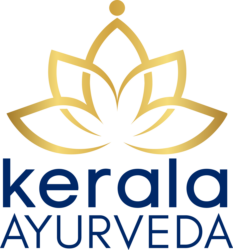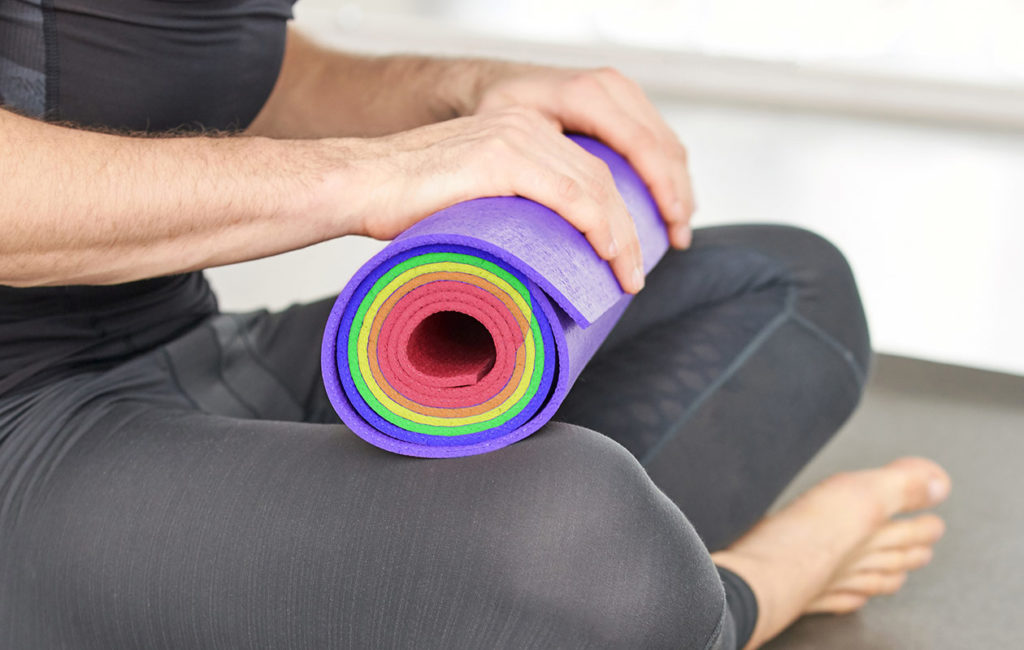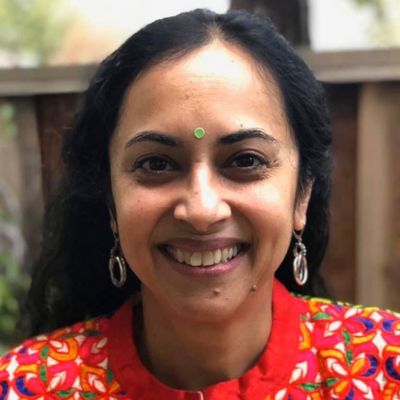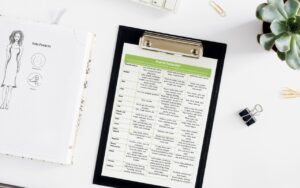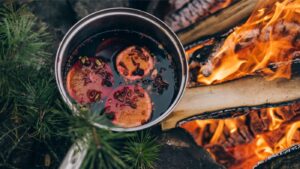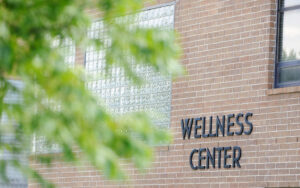
The LGBTQ+ (Lesbian, Gay, Bisexual, Transgender, Queer) community is a minority community in the US and worldwide. It faces discrimination in many fields, including healthcare. Prejudice, discrimination and racism of any kind is a public health crisis and deeply impacts the health and well being of any community.
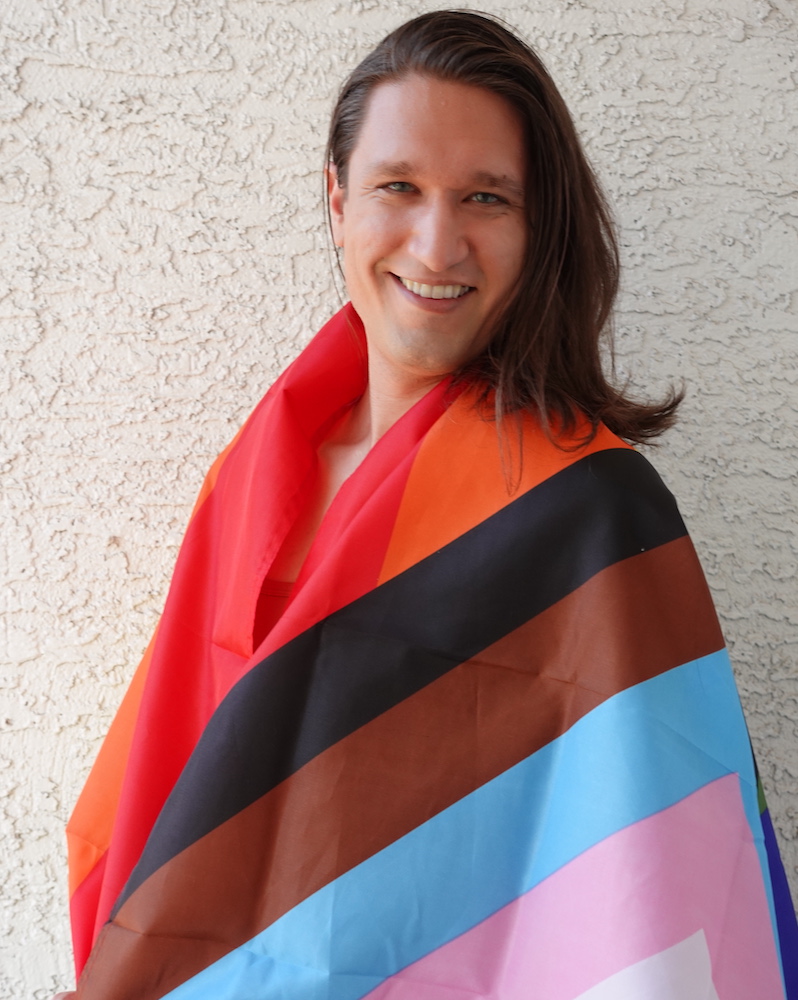

Discussions on sex and gender need to be an open subject in any healthcare industry, but what is the Ayurvedic approach? Says Academy Director, Vaidya. Jayarajan Kodikannath, “Ayurveda has traditionally supported everyone irrespective of gender identity and orientation and Kerala Ayurveda is proud to be an LGBTQ+ affirming, safe and welcoming space.” We opened this discussion in our Debunking Ayurvedic Myths: Sex webinar, featuring our Ayurvedic Doctors (Vaidyas), aired in June 2021. Inspired by this event, NAMA (the National Ayurvedic Medical Association) is offering a panel on similar topics this November 7, 2021.
To widen the conversation, we explored LGBTQ+ representation in Ayurveda with Stevie Inghram, M.S., C-IAYT (They/She) who is a Yoga Teacher, Yoga Therapist, Naturopathic Doctor in training and is studying the Ayurvedic Wellness Counselor Program at Kerala Ayurveda Academy. Stevie has been on their own exploration of sexuality and gender identity throughout the years and very eloquently notes that, LGBTQ+ education and affirmation are of paramount importance within modern healthcare and asserted that holistic medicine should be a frontrunner in changing the landscape.






Ayurveda’s history and the LGBTQ+ community
It’s LGBTQ+ History Awareness month in October – the perfect time to take a closer look at Ayurveda’s historic relationship with gender. Ayurveda’s origin is from modern-day India. According to the 5,000 year old “science of life” (Veda + Ayur), being LGBTQ+ is natural and genetic, and is not a “disease.” There are genetic references in the root Vedic texts, though the most ancient principles and practice of Ayurveda predates the texts. Our Debunking Ayurveda Myths: Sex webinar clarified that Ayurveda is LGBTQ+ affirming. In fact, other indigenous wisdom systems from various regions are, at their core, all-accepting, when we eliminate political influences and biases that may have crept in over time. Madison Madden, author and practitioner of LiveWise Ayurveda & Integrative Health in Austin, TX expresses the Ayurvedic stance on the LGBTQ+ community in this beautifully wise spirit. As a board member of the Texas Ayurveda Professionals Association (TAPAS), she affirms “We must not only discuss and affirm LGBTQ+, we must celebrate it! It’s time we come together to heal the guilt, shame and dogmatic belief systems that contribute to so much ill health we see today. The primary essence of Ayurveda is to match our nature with Nature. It’s imperative that we honor and recognize all the ways that our nature expresses itself.” In fact, during TAPAS’ October Veda Mela event, as this article was unfolding, they agreed to put up signage that they’re an LGBTQ+ safe space!
Indian cultural influences on gender laws in Ayurveda
During ancient Vedic times, the concept of a third gender, known as Tritiya Prakriti was widely accepted and honored. What happened to this awareness, and how were things different in past epochs? We cannot know for certain, but what we can find is intriguing.
Indian religions and culture are replete with references to acceptance of gender identities and sexual orientation. The birth of Sage Bhagiratha is ascribed to the union of two females, Lord Ayyappa is said to be born from the union of two men, one of whom is Lord Shiva. The Kama Sutra talks about “Gandharva marriages,” or unions of love and cohabitation – these also allude to LGBTQ+ relationships. Anyone who visits the Khajuraho temple in India can see a variety of sexual orientations and practices portrayed amongst the Goddesses and Gods.
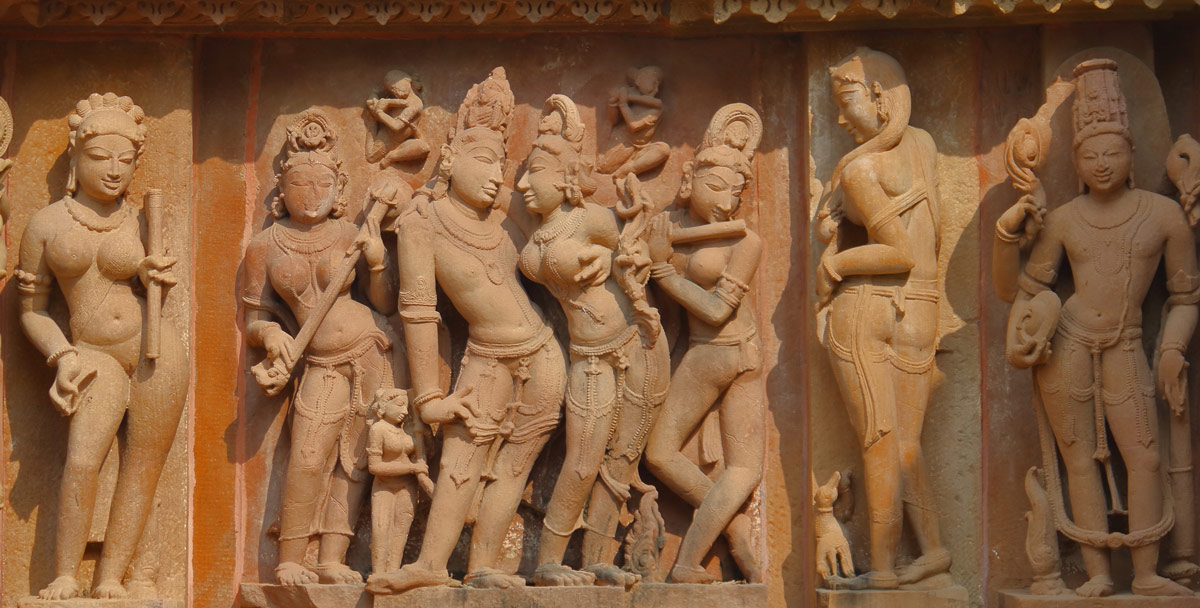

Through successive colonization things changed. In 1861, a British law ruled that LGBTQ+ relationships are criminal. LGBTQ+ relationships were decriminalized only in 2018 and the landscape is still rather conservative, but there are rapid strides being made in outlook and acceptance. In a landmark judgement allowing a transgender woman to become a bride in Chennai, the judge, Justice Swaminathan talked about the ancient epics, Ramayana and Mahabharata to establish a firm foundation for his ruling (referring to the brave transgender warrior Shikhandi and how Lord Krishna, the revered Hindu God transitioned to marry Aravan). The changing landscape in India will influence the Ayurveda community as well. Many of the industry leaders in the U.S. have strong ties to Ayurveda’s birthplace.
“Ayurveda is a health system of one of the most tolerant cultural philosophies called the Sanatana Dharma,” explains Vaidya. Namyata Pathak, a Vaidya Scientist and Integrative Ayurveda Specialist with Ayu Care as well as Education Chair, Board of Directors for the California Association of Ayurvedic Medicine (CAAM). “It is designed to respect, cherish and nurture all forms of life to their full potential. It celebrates diversity as it transcends socio-economic divides, personal preferences of a God, food choices, and for that matter, choices of sexual partners. The key purpose of Ayurveda is to help establish health for everyone. It aspires for individuals to be healthy enough to live their purpose and be positive contributing members of society for collective benefit.”
Drawing on the best of our past for a better future
Vaidya. Namyata’s statement on behalf of CAAM is a sober reminder of the consequences to a community if we’re not supportive of all gender identities and sexual orientations covered in the LGBTQ+ spectrum. “Q” refers to the queer identity, which has been reclaimed by the community to overcome the former prejudice against those not of straight or cisgender identity. “Shaming, labelling, judging our fellow humans for their sexual orientation or gender identity would never be encouraged within Ayurveda as it would be counterproductive to its very purpose,” she elaborates. “It leads to a decline of mental health, relationship issues, increased trauma and members of society who are vulnerable to the health conditions that are exacerbated by injustice and oppression. Society is for biology and not the other way around. If we see it like that, we can resolve many crises around us. Guided by nature and efficiently fueled by love, which is unconditional to personal preferences and genetic makeup, we can focus on tackling the real problems that plague us and our world.”
Until our world is a safe space for everyone, we need to reach out to our LGBTQ+ community and invite their voices to be heard. The more we listen, the better support we can be.






Stevie’s story – the pain and the healing
How did you get involved with Ayurveda?
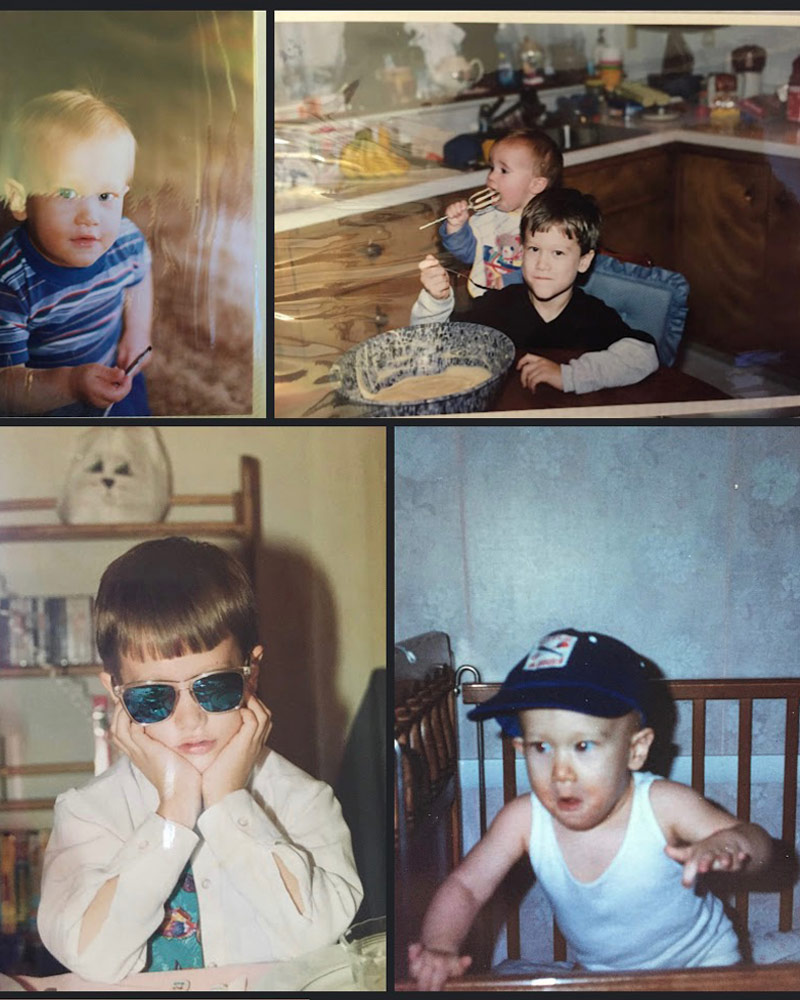

Tell us about your early years, and what made you join healthcare, and become an LGBTQ+ advocate?
STEVIE: I grew up as a Pastor’s kid in the Christian tradition… I was bullied in middle school and received homophobic messages from school and from the Church. Over the course of my father’s career, he has been the Senior Pastor in multiple United Methodist Churches. I knew from the time I was 6 or 8 that I was different but didn’t have the language for it for many years. Due to my father’s job, we moved every couple of years or so that my father could minister in a different church. During this time in middle school, I was bullied for being perceived as being gay. This was when I began to make a connection between my feelings, identity, and orientation which has continued to evolve even to this day as I move along this path of yoga.
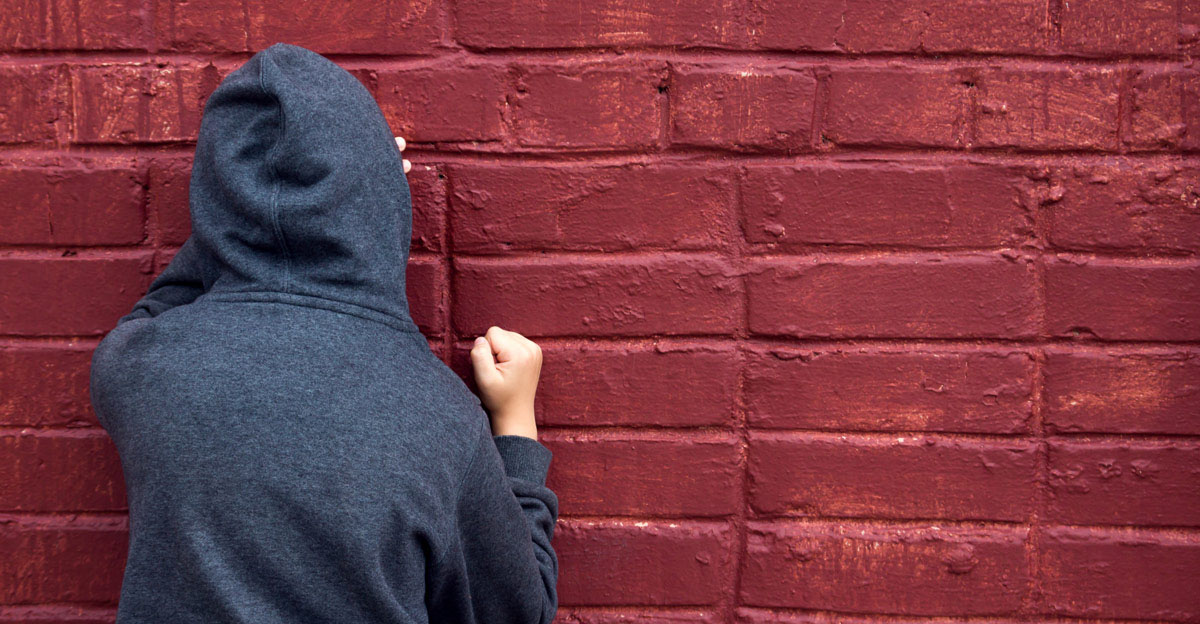

In middle school I heard messages from the Church that I would go to hell for having the feelings that I do and that God hates f-g-ts, a harmful message often promoted by groups that oppose LGBTQIA+ rights. Given these harmful messages, often times when a queer or transgender person starts owning their identity, they risk hating themselves. Personally, I tried to date girls, I tried to pray and wish away my sexuality, almost like a ‘self-conversion’. Unlike many of my LGBTQIA+ peers, I was never forced to undergo formal “conversion therapy,” but during my recent interviews in, “Queer Story Time,” I realized that the messages I heard had made me internalize homophobia to such a degree that I wanted to convert myself to being heterosexual. Throughout my education, luckily I was involved in music and theater so I had a supportive community, and one of the friends who bullied me came out as lesbian (she had internalized and projected homophobia) and we became great pals later in high school. In college, as I accepted myself, I started having severe panic attacks given my background and the pressures of academia. This is when I started exploring yoga and Buddhism to understand myself, my identity and my reality. I read Thich Nhat Hanh’s book, Living Buddha, Living Christ, which gives a beautiful perspective on how Buddhism and my Christian upbringing could unite.
When I started with Yoga Asanas, I realized that moving my body and breathing mindfully had physiological benefits and released stress. After college I did my 200 hour RYT training with Colleen DeVirgiliis of Seva Power Yoga, in West Chester, PA and Colleen single-handedly gave me the impetus to start exploring my own trauma, though I didn’t give it that name in 2012 as we were not as trauma-informed back then. As I taught yoga for a couple years, I started reading a lot of the scientific literature about its benefits that became available after 2010; I went on to do my Master of Science in Yoga Therapy after that.
It was around 2015, during my graduate studies when I explored my own trauma more fully; I distinctly remember that like a deer in headlights, there were many of my colleagues who were also processing their own trauma through their study of yoga therapy. That is when I finally accepted that I had been traumatized by my experiences growing-up. Often we think trauma is a big life event that alters the course of our life, like physical violence or sexual assault; however, repeated and consistent micro-traumas such as bullying and harmful religious messages, overtime, can constitute major trauma.
With this new found acknowledgement, studying healthcare and healing modalities has helped me deal with all the assaults to my identity that I experienced over the years. I went on to do Reiki Master training, Buddhist Lay Ministry training, Naturopathic Medical School, and Ayurveda which have all provided me with pieces to my own healing puzzle. My sincere hope is to use these modalities for my future clients and patients. Even though allopathy is often restricted to drugs and surgery which at times is needed, I have found that holistic practices ultimately help heal and empower people on a daily basis. Given these experiences, I will continue ‘Queer Story Time’ on Instagram, in addition to teaching modules and presenting on gender and sexuality in various Yoga Therapy & Ayurvedic training programs and overall would like to work at making healthcare and Integrative Medicine more LGBTQ+ affirming.
Did you encounter discrimination in healthcare?
STEVIE: When I started medical school, I sought out a primary care physician who was an osteopath (hoping for holistic care) as this is who my insurance would cover. At the time, I was taking medication to prevent exposure or transmission of HIV, a very responsible thing to do. As I told this Dr. about the medication, he first asked me what it was for. When I told him, he became visibly uncomfortable and walked out of the room, then from across the hall, told me he couldn’t treat me. This was clearly a case of medical discrimination. I was so angry that I wanted to create a scene at the office but I left and posted a TikTok video about my experience that quickly had 40,000 views and a lot of support. Being a medical student, I talked about my experience with friends and lawyers and decided that I did not have the resources to pursue a discrimination case at this time. I did write to the Arizona Board of Osteopathic Examiners and they promised to investigate my complaint; a year later there was an investigation done and it was decided that there was no evidence of misconduct by this Physician. This reality is all too common for LGBTQIA+ persons in addition to other minority groups. Discrimination is not just malpractice, but is a criminal offense in all modern licensed healthcare spaces.






Improving healthcare for LGBTQ+ clients
How can we combat inequities and biases?
STEVIE: As I think about this, I remember Dr. James O’Keefe, a Medical Doctor – whose son came out – he scientifically studied the LGBTQ+ community and spoke about it in evolutionary terms in a TED Talk entitled, Homosexuality: It’s About Survival, not Sex, which can be easily viewed on YouTube. In this talk, he highlighted a sociological and evolutionary perspective where LGBTQ+ people showing up as their authentic selves unites families and communities! In the healthcare space, shockingly, only in the ‘70s did psychiatry no longer classify LGBTQ+ as a disorder. Currently, western medicine leads training in LGBTQ+ competencies but both Allopathic and Complementary/Integrative healthcare is fundamentally lacking and needs to educate all professionals in this area. In Ayurveda, we need a sincere conversation on ancient texts and cultures. We need to examine root texts and we can’t pick and choose, saying we accept Bhagawad Gita but not Charaka Samhita. We also have to be mindful that this interpretation is done by qualified people like the KAA teachers and a group of unbiased professionals; we need the modern context combined with ancient knowledge.
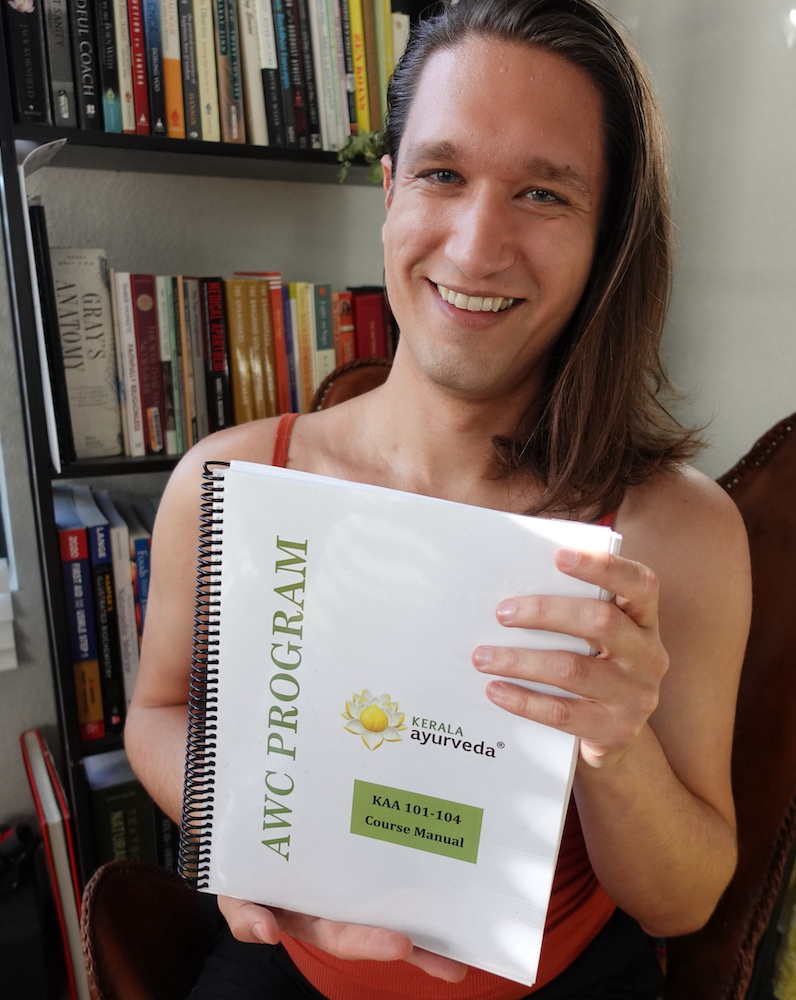

We recognize at KAA that education of healthcare professionals about the LGBTQ+ community is needed, and the specific needs and approach will vary across individual regions. After this interview, we inquired with our resident clinicians, including Vaidya. Kamya Pillai, who shared, “When I started my practice in India in 2008, I did not have any clients who openly identified as LGBTQ. Now that times have changed and there is a lot of positive developments in the society, I see many clients.” She believes that the first step to supporting them is providing a safe space for them to be themselves and report honestly about their entire being, including sexual health. “When Ayurveda tells us that we are one unified field of pure consciousness and it is the same light that shines in each one of us, it is our responsibility to practice and make this ancient wisdom a living reality in our daily life. If we fail to understand this, we are not practicing Ayurveda!” Vaidya. Kamya asserts. Holistic health attends to all aspects of physical, mental and spiritual health. Ayurvedic professionals perform a detailed assessment of a person’s history. Gender identity, expression and sexual orientation are an inherent part of their authentic selves.
This is also true for any trauma they may have experienced, which most LGBTQ+ people unfortunately do. Also, if sexual health comes up while exploring health history, we shouldn’t be reactive about orientation and experiences and promote shame or project biases.
Take the example of someone transgender. They may not opt for surgeries or a medical transition to feel self-expressed. As healthcare professionals, we need to know that. Also, people don’t wake up one day and decide that they’re going to be transgender (or LGBTQ+ in general); it goes a lot deeper than a random decision. Many of us spend years and even decades trying to sort through feelings we have struggled with due to living in a colonized global society that does not normalize anything beyond cis-gender heterosexuality (cis-gender refers to those whose gender identity aligns with their sex assigned at birth), often abbreviated as CisHet. On another note, it needs to be acknowledged that human genitalia serves a particular anatomical and physiological function for urinary, sexual, and reproductive purposes; this genitalia cannot determine one’s gender identity any more than one’s bicep muscle or kidney. The point is, these are all human body parts with particular structure and function but none of them singularly determine the complexity of one’s gender identity or sexual orientation. When it comes to these aspects of the human experience, we are talking about the heart, mind and soul of an individual, and thus their inherent identity and orientation that we as healthcare providers can easily affirm. If we continue decades of invalidation, we risk perpetuating a great deal of harm and trauma which negates our duty of Ahimsa.
Ultimately, this starts with examining our own biases as practitioners. We must acknowledge that there is no singular way for people to look, to conform to a particular gender identity and we need to honor their inner essence, their Prakriti and their Pronouns. Oftentimes when seeking medical care, LGBTQ+ people are fearful and call to check whether a place is affirming; that onus shouldn’t be on them. Holistic spaces must lead this by visibly providing LGBTQ+ affirming healthcare, speaking the language, and combating biases.
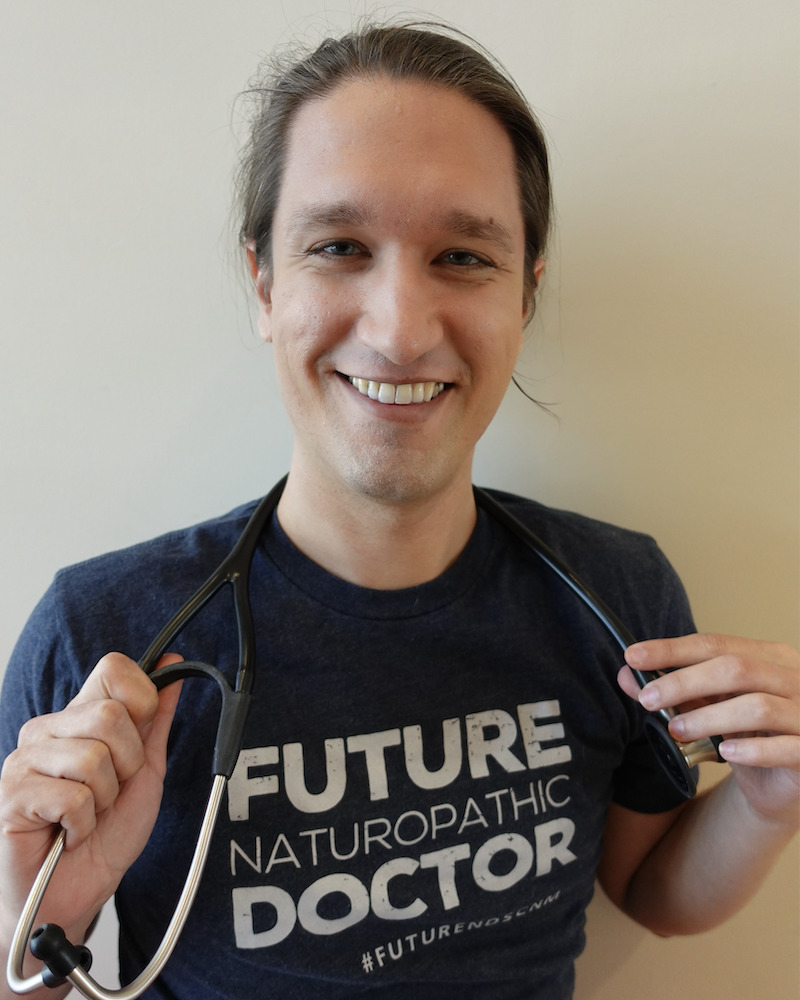

LGBTQ+ support checklist for wellness centers and professionals
STEVIE: We need a code of ethics as a profession that is affirming of all minorities, and an oath to avoid the malpractices of racism, homophobia, and transphobia. Discrimination is a malpractice and a crime.
Here are some of the specific actions we came up with in our conversation with Stevie.
Marketing material and healthcare forms should indicate the organization is affirming of the LGBTQ+ community.
STEVIE: We need to have that rainbow prominent; in our marketing material and intake forms, we need to indicate that we are affirming and in healthcare forms, we need to leave enough space for gender identity, sexual orientation, and have a section for pronouns.
An Ayurvedic Oath for prevention of malpractices can be stated as a clear ethical code, because discrimination is a malpractice.
STEVIE: We need a code that is affirming of all minorities, an oath to avoid malpractices, racism and homophobia. Discrimination is a malpractice and a crime.
“Conversion Therapy” should not be part of healthcare – its impact is debilitating and harmful.
STEVIE: Conversion practices are harmful spiritual and psychological practices attempting to convert someone from queer identifying to a cis and heterosexual identity. It should be known that these practices are strongly condemned by every major medical and psychological association around the world. If any Ayurvedic (or Western medicine) professional aids and abets this, that doesn’t mean that Ayurveda or Western medicine condone it.
The “Koshas” can be targeted for LGBTQ+ affirmative healing.
STEVIE:The Koshas or sheaths innate to the human experience can be used in healing. In the Annamaya Kosha where trauma is embodied physically, the work is to make them feel safe in their bodies. On to the Pranamaya Kosha with healing breathwork, Manomaya Kosha with Yamas, Niyamas and self reflection, Jnanamaya Kosha with therapy, clinical advice in Ayurveda and Yoga therapy which allows one to be connected to their own innate wisdom. Finally, the Anandamaya Kosha where we learn to stand in our truth, empowered and blissful. Even for professionals, this is where we reflect on being loving, compassionate and doing no harm.
Dukha or adverse experiences do arise, but resilience is vital. We are empowered by a set of tools for us to stand in our power; yoga, meditation, nutrition, and by Ayurvedic means of supporting nourishment via, Dinacharya and Ritucharya.
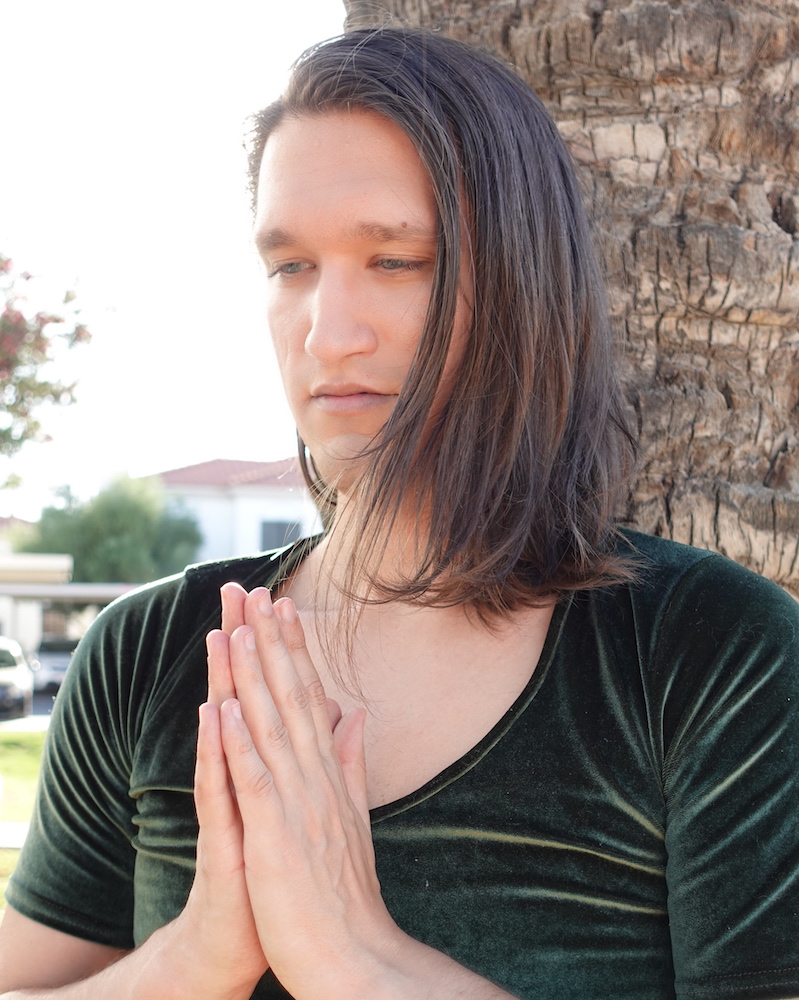

More specific healthcare tools for the community’s unique needs, including trauma and HIV prevention.
The LGBTQ+ community faces major health challenges. Every 45 seconds, an LGBTQ+ youth attempts suicide. While there could be underreporting about violence and killings, it is estimated that the average life expectancy of trans women of color is less than 35 years. Many people are prone to self-harm. Trauma resides at a cellular level as Ama (toxins), and may require both palliative care and cleansing therapies to deal with.
STEVIE: Considering trauma, mental health issues and possibility of abuse, they need affirming healthcare and safe spaces for healing.
As far as prevention of HIV, it is important to note that the LGBTQIA+ community has been successfully running public health initiatives since the 80’s during the height of the AIDS epidemic but recent evidence shows that HIV is becoming more prevalent in the cis-gender and heterosexual community due to lack of education. The truth is, viruses do not care about gender or sexuality and thus perpetuating the narrative that HIV is predominately a gay disease or an LGBTQIA+ disease is false and harmful. As professionals practicing integratively, it is important to work with a primary care physician because there are many modern medicines that are efficacious for preventing or treating HIV that actually suppresses HIV viral load to undetectable levels so it can’t be detected by modern lab testing; in fact, the virus being undetectable makes it so that it is untransmittable (U=U; undetectable = untransmittable). There is both pre-exposure prophylaxis (PrEP) and post-exposure prophylaxis (PEP) medication widely available to prevent exposure to HIV or to take if there has been a potential exposure within the past 72-hours. As Ayurvedic Professionals we should be very cognizant of immune boosting herbs in these cases and work in an integrative manner, with a qualified Physician in Antiretroviral Therapy in order to avoid potential interactions with HIV medications.
Verbalize it – in addition to written statements, be proactive in communicating with staff and clients, and invite them to be self-expressed.
Verbal communication creates a sound vibration, and it’s powerful. We experienced this firsthand on a large community scale when we hosted our Debunking Ayurveda Myths: Sex webinar. Says panelist, Vaidya. Sheena Sooraj of KAA, “It was a great platform to talk about one of the three pillars of Ayurveda. I strongly felt it was relevant to debunk some of the myths about it and generally people are hesitant to discuss this topic very openly…Since Ayurvedic professionals are trained both in interpreting the ancient philosophy as well as healing, our Ayurvedic training should help us…and reframe how we view the world around us. We need to respect [LGBTQ+] perspectives and give them equal respect. They are not different…they are part of us…”
Encourage organizational bodies to make statements of support
During the writing of this article, we took the liberty of getting statements from the Ayurvedic organizations previously mentioned (TAPAS and CAAM), as well as the National Ayurvedic Medical Association (NAMA). On behalf of NAMA, President Margrit Mikulis ND, AD affirmed, “We promote tolerance and acceptance, and we stand firm on providing a safe, non-judgmental and supportive space for all NAMA members within our LGBTQ+ community. Additionally, through our active Diversity and Inclusion Committee, NAMA will continue to further explore the ways to support the LGBTQ+ community.”
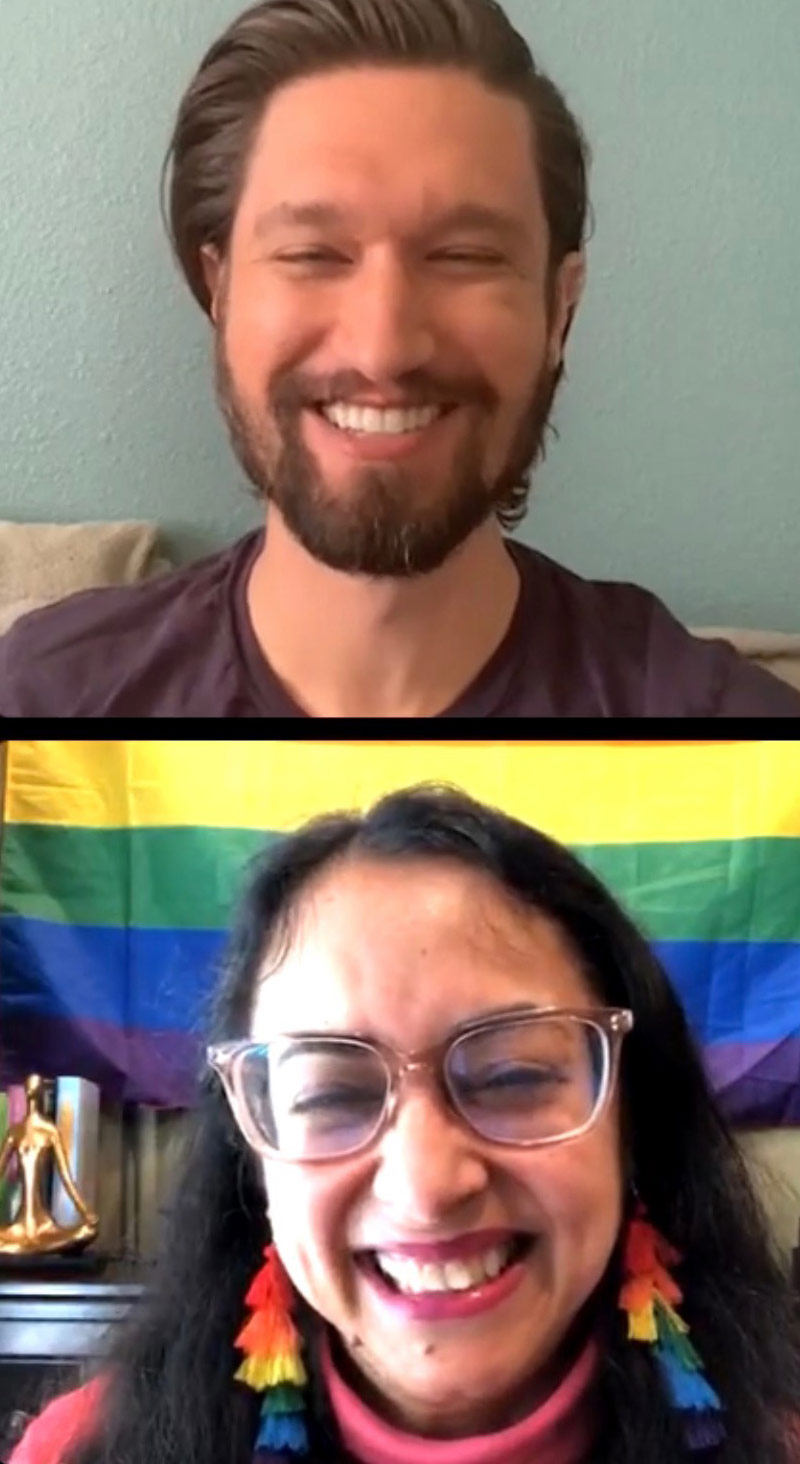

What would improve inclusivity and representation of the community amongst Ayurvedic professionals and students?
Humility in our knowledge is vital. Just because science hasn’t yet explained it, or we haven’t found enough information in whatever ancient texts now survive, doesn’t mean it can’t be explained! There is always more to learn. We can take a cue from Vaidya. Kamya, who remarks that since practicing in the U.S, “I’m seeing many LGBTQ+ clients and it is giving me a great opportunity to learn a lot about the diversity that exists within their community, and I am loving this experience.” While every day is a new day to learn, we celebrate awareness and observation months, such as October’s LGBTQ+ History Month, and Pride Month in June – when this interview’s author, Anuradha Gupta appeared on one of Stevie’s “Queer Story Time” segments on social media.
STEVIE: We need LGBTQ+ Representation at NAMA which addresses biases against all minorities, whether BIPOC or LGBTQ+ or any marginalized community. Also, adequate, competent and affirming LGBTQ+ schools and training are needed so LGBTQ+ professionals can feel welcome in these spaces. Ayurvedic spaces and professionals need to be proactive; not passive allies, but true advocates. This will help LGBTQ+ professionals and clients both.
Institutions can ‘be the change’ and make bold, progressive statements at the front and center of supporting minority groups, BIPOC , LGBTQ+ and so on. They must take a firm stance on oppression. People worry about being demeaned by their colleagues or health care professionals and bullying should not be tolerated. Institutions create community which can help queer people.
Spiritually speaking, suffering begets more suffering and perpetuates Samsara (the unreal world of Maya as Dharmic faiths see it). We need to be compassionate and not perpetuate harm. This would make Ayurvedic spaces safe for LGBTQ+ professionals and clients.
Stevie’s message
To the LGBTQ+ community:
STEVIE: Youth and people need to seek accepting relationships that are supportive and affirming esp. if they are in an unaccepting home; it is something that literally impacts their nervous system and beyond. They need a nourishing environment that every human deserves. Building a solid relationship with themselves through holistic modalities and building community would foster resilience.
To Educational Institutions and Healthcare practices:
STEVIE: If people don’t mention they are LGBTQ+ affirming many in the community worry about their own safety. Whether you’re an institution or a small medical practice, do actively promote you are LGBTQ+ affirming with a rainbow on your practice page; the community may otherwise worry whether they will be harmed which they shouldn’t have to worry about.
To Health Professionals:
STEVIE: In holistic health we explore physical, mental, sexual and spiritual health and need to understand how trauma presents. We have to be cautious in using language that pathologizes the queer experience. In the Yoga and Ayurvedic world, we can’t say that being LGBTQ+ is a Vikriti or an imbalance nor should it be said that LGBTQ+ identity is due to a Chakra (energy center in the body) imbalance. It is somebody’s inherent identity we are talking about.
To Heterosexual and Cis people (individuals whose gender identity aligns with sex assignment at birth):
STEVIE: The LGBTQ+ community often experiences lack of acceptance in families and religious spaces. On top of that there are institutions and systems in place that reinforce the trauma we experience as queer people. I urge the Cis gender and Heterosexual community to think about what it is like to live like this, a window to our world…






About Stevie
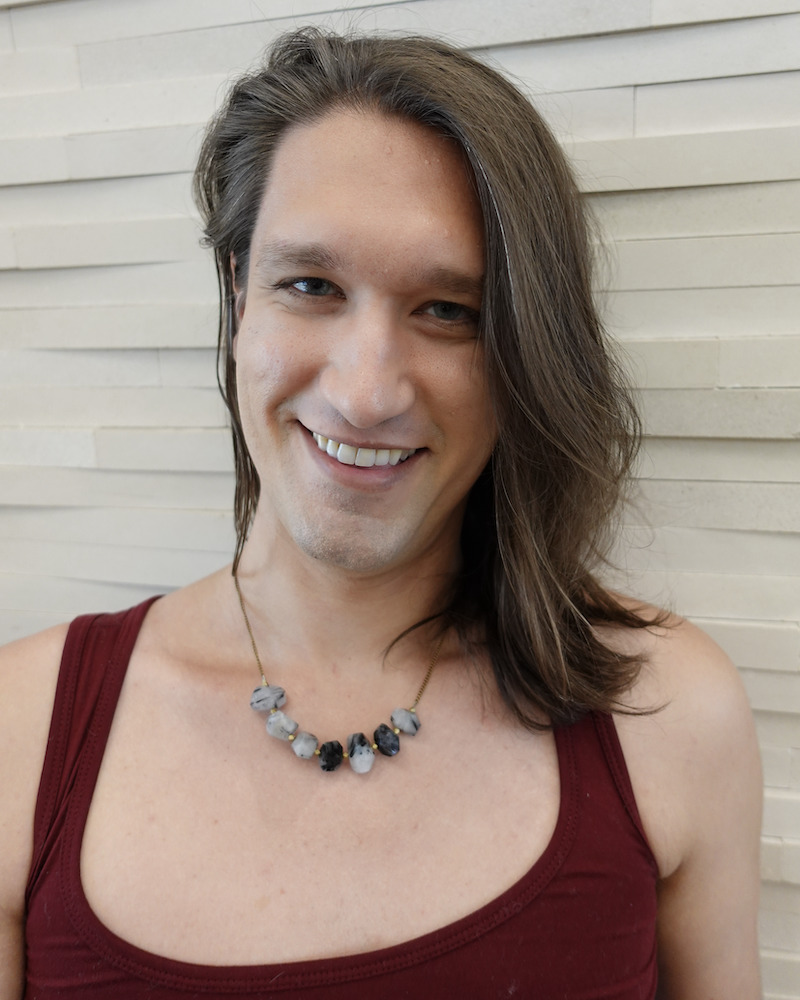

Stevie Inghram, M.S., C-IAYT (They/She), is a Queer & Trans Feminine Yoga Therapist and graduate of the Master of Science in Yoga Therapy program at Maryland University of Integrative Health; they have been teaching yoga for over a decade. As a Yoga Therapist, Stevie’s primary work is focused on healing the trauma that is so pervasive in the queer and transgender communities. As an extension of this work, Stevie began a podcast called Queer Story Time via Instagram that is focused on sharing stories of those in the gender and sexually expansive communities (GSE = LGBTQIA+). Since then, they have become a big advocate for expanding GSE competencies in healthcare training programs. Given this, Stevie is teaching GSE competencies at several Yoga Therapy Training programs and is writing on the topic for Yoga Therapy Today, the magazine of the International Association of Yoga Therapists. Additionally, Stevie is a passionate advocate for science & evidence-informed practice in the holistic medicine world. They believe that a middle ground can truly be found, one that simultaneously respects the scientific method and caring for the whole-person. Currently, Stevie is a Naturopathic Medical Student at Sonoran University of Health Sciences (Formerly Southwest College of Naturopathic Medicine), an Ayurvedic Wellness Counseling Student at Kerala Ayurveda Academy, and a Co-Sangha Director at Daybreak Oneness, a Buddhist non-profit organization focused on providing an entry point to Buddhist/Dharmic practice. You can find them on all social media: @futurenmdyogi
Follow Stevie on all major social media platforms @futurenmdyogi
